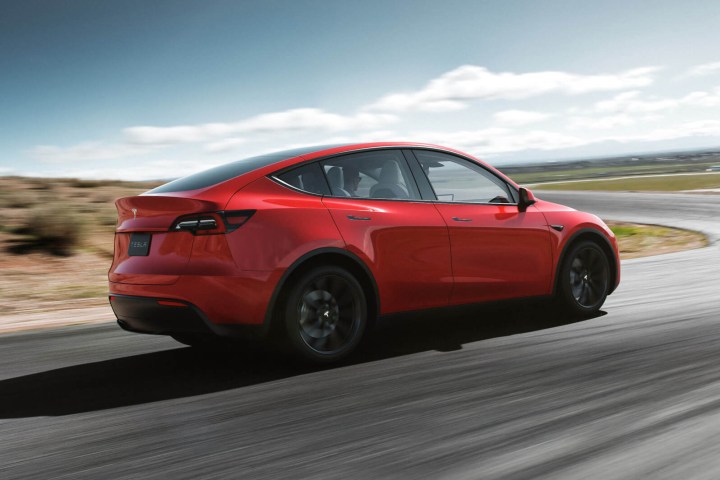Electric cars may be getting cheaper, but they’re not taking off yet price. Likewise, many potential customers are looking to invest the $7,500 tax credit on an electric car as a way to reduce the hassle of buying a new car.
But a Federal EV tax credit it goes through a number of iterations, and it doesn’t last forever. Not only that, but as it turns out, most electric cars are not creditworthy, and it’s important to keep this in mind if you’re planning to buy an electric car in the near future.
Want to know if your next vehicle qualifies for an EV loan? Here’s what you need to know.
What are the loan requirements?
To qualify for the federal EV tax credit, vehicles and manufacturers must meet several requirements.
For starters, buyers can get a full $7,500 EV tax credit if they buy a new car. Consumers a electric vehicles can find a loan, but it is limited to $4,000 instead.
Other requirements must also be met. To qualify for the $3,750 credit, 40% of the battery’s salt must come from the US or countries that have a free trade agreement with the US That will increase to 60% in 2024, 70% in 2026, 80% in 2027, 90% in 2028, and 10202% from 2 countries or 2029 in cars, and 2029% in cars countries 2029. anxiety will be removed from debt.
The other half of the credit depends on whether the battery was assembled or manufactured in the US. For 2023, 50% must be manufactured in the US, while this figure increases to 60% from 2024, 70% in 2026, 80% in 2027, 90% in 2028, and 2029% in 2029.
There is a premium price, too, which varies depending on the type of car. Trucks, vans, and SUVs probably no more than $80,000 – all other cars must be $55,000 or less.
There is also a financial limit. Buyers can use the modified amount from the year the car was delivered, or from the previous year. When it comes to new cars, for single filers, they cannot exceed $150,000. For heads of households, it cannot exceed $225,000. For married couples filing jointly, it cannot exceed $300,000. And, for married couples filing separately, it cannot exceed $150,000. The numbers are exactly half used EV buyers.
Unfortunately, it’s not as simple as getting a fixed credit on your taxes. The amount of credit you will receive depends on how much tax you earn each year. For example, if you bought a qualifying car and took a $2,000 credit against your annual income tax, you only get $2,000. The rest will not count toward the refund, or next year’s taxes. If you have no credit, don’t expect anything.
Cars that still deserve it

While we can’t help you determine if your income qualifies for the EV tax credit, we can help you determine if any vehicle qualifies. Here is a list of vehicles that were eligible for the federal tax credit at the time of this writing. Keep in mind the MSRP limit though – many of the cars on this list can go over the price if you choose a higher trim level or opt for more upgrades. This list is subject to change, so it may be worth double-checking whether the vehicle you are buying is suitable for the destination fueleconomy.gov.
Bmw
- 2024 X5 xDrive50e plug-in hybrid 2024
- Up to $3,750 in credit
- Up to $80,000 MSRP
Cadillac
- 2023-2024 Lyric
- Up to $7,500 in credit
- Up to $80,000 MSRP
Chevrolet
- 2024 Blazer EV
- Up to $7,500 in credit
- Up to $55,000 MSRP
- 2022-2023 Shop EV
- Up to $7,500 in credit
- Up to $55,000 MSRP
- 2022-2024 Bolt EUV
- Up to $7,500 in credit
- Up to $55,000 MSRP
- 2024 Equinox EV
- Up to $7,500 in credit
- Up to $55,000 MSRP
- 2024 Silverado EV
- Up to $7,500 in credit
- Up to $80,000 MSRP
Chrysler
- 2022-2023 Pacifica plug-in hybrid
- Up to $7,500 in credit
- Up to $80,000 MSRP
Ford
- 2022-2023 Escape plug-in hybrid
- Up to $3,750 in credit
- Up to $80,000 MSRP
- 2022-2023 F-150 Lightning
- Up to $7,500 in credit
- Up to $80,000 MSRP
- 2022-2023 Mustang Mach-E
- Up to $3,750 in credit
- Up to $80,000 MSRP
- 2022-2023 E-Transit
- Up to $3,750 in credit
- Up to $80,000 MSRP
Jeep
- 2022-2023 Grand Cherokee 4xe plug-in hybrid
- Up to $3,750 in credit
- Up to $80,000 MSRP
- 2022-2023 Wrangler 4xe plug-in hybrid
- Up to $3,750 in credit
- Up to $80,000 MSRP
Lincoln
- 2022-2023 Aviator Grand Touring plug-in hybrid
- Up to $7,500 in credit
- Up to $80,000 MSRP
- 2022-2023 Corsair Grand Touring plug-in hybrid
- Up to $7,500 in credit
- Up to $80,000 MSRP
Rivian
- 2023 R1T
- Up to $3,750 in credit
- Up to $80,000 MSRP
- 2023 R1S
- Up to $3,750 in credit
- Up to $80,000 MSRP
Tesla
- 2022-2023 Model 3
- Up to $7,500 in credit
- Up to $55,000 MSRP
- 2022-2023 Model Y
- Up to $7,500 in credit
- Up to $80,000 MSRP
Volkswagen
- 2023 ID.4
- Up to $7,500 in credit
- Up to $80,000 MSRP
Editor’s Note